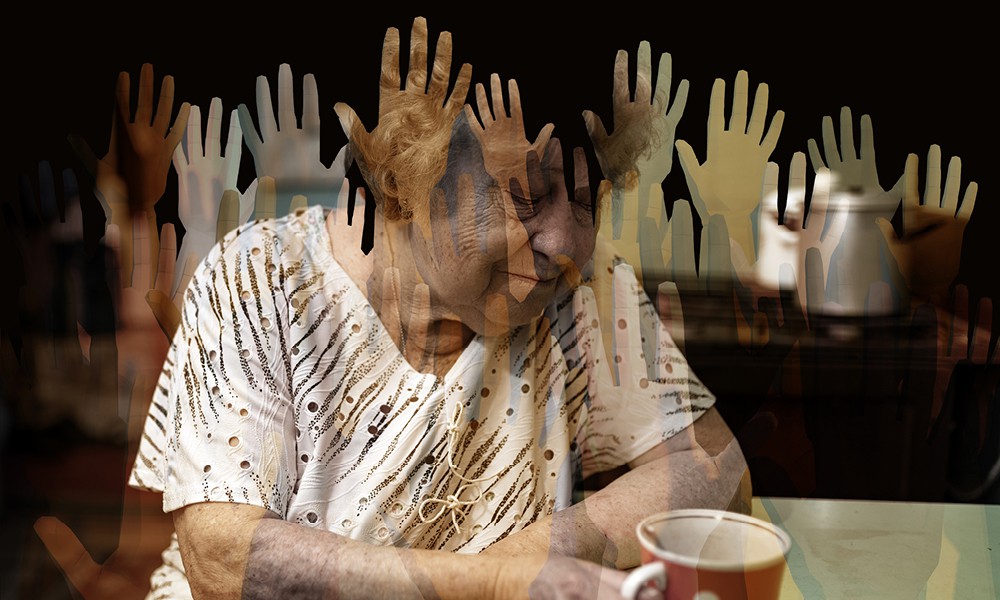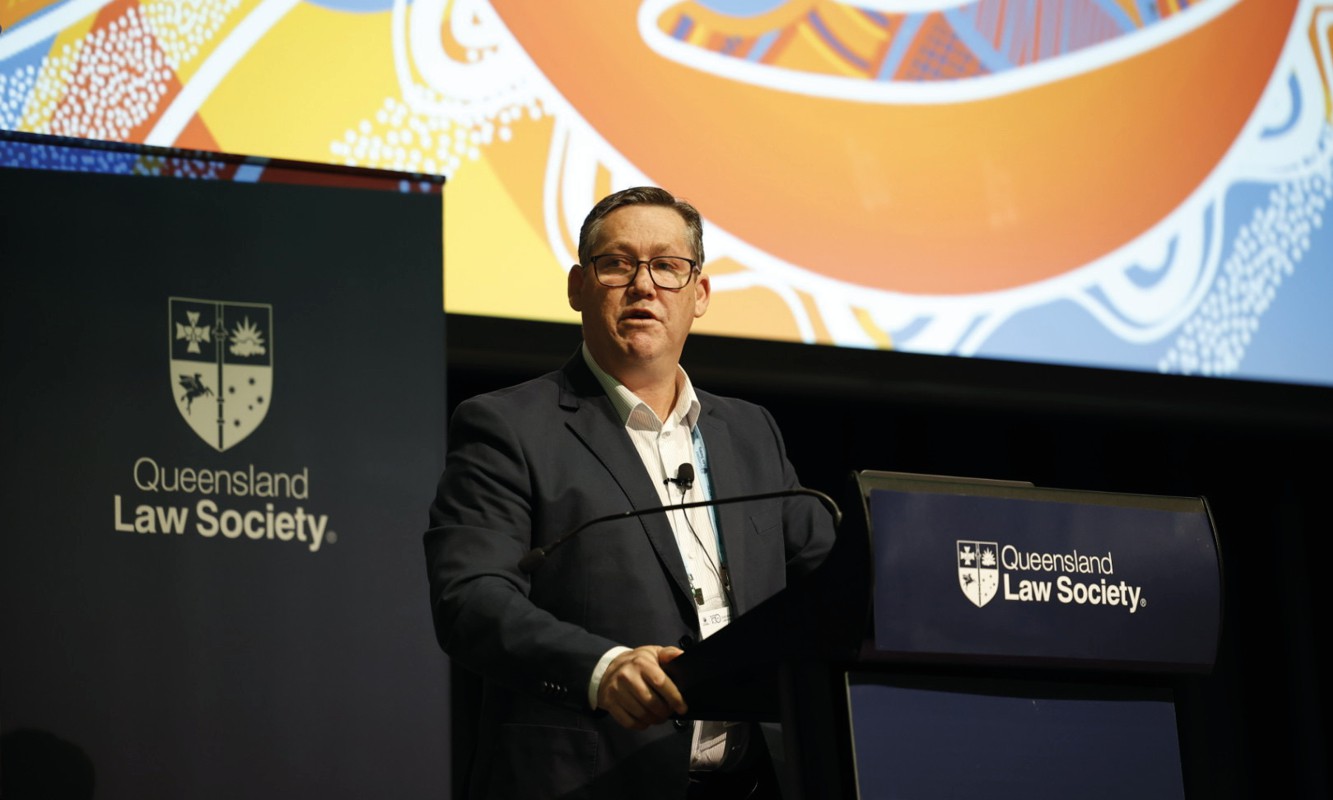Older Australians are caught on a slow-moving train of ongoing global debate about older persons’ rights. The first draft resolution (proposed by Argentina) for a Declaration of Old Age Rights was put to the United Nations’ General Assembly at its Third Session in 1948.
More than seventy years1 have now passed and the General Assembly is still debating whether older persons need their own human rights treaty. Queensland Law Society and the Law Council of Australia2 publicly support a convention on the rights of older persons, which is a significant step forward in Australia–the only profession to have taken such a stand so far.
It is ironic that older persons have had to endure such a long debate without resolution. This irony is not lost on many who advocate for a convention, and who argue that there is clear evidence that older persons have specific human rights protection needs. They argue that older persons are suffering isolation, exclusion and neglect because they cannot access human rights to autonomy, agency and independence, equality and non-discrimination. They contend that older persons are dying because they cannot access human rights to preserve life, to access health services and to an adequate standard of living, care and social protections.
Age proxies and social constructs
Increasingly the older persons’ rights movement argue that age proxies (such as pension age) don’t provide a useful base for setting protections against the impact of ageism, age discrimination or aged-based violence, abuse and neglect. In fact, age proxies are themselves discriminatory. For example, within the Australian context, our First Nations people still live under a significant gap in life expectancy. Government policy has responded to this by allowing First Nations people to enter or access aged care at 50 years. Despite this recognition, there is no concomitant recognition in other key policy areas, for example the age at which age pension is payable, at which superannuation can be withdrawn or when other aged-based concessions are offered to ‘seniors’, particularly by state and territory Governments.
Any arbitrary approach runs the risk of having unintended consequences, or simply excluding whole groups who most need support or protection. Violations of human rights are not experienced in a consistent manner by older persons, just as they themselves are not a homogeneous group within society. Any convention will need to be flexible, scalable, and anticipate these sorts of consequences. Core functions of the Convention on Elimination of all Forms of Discrimination against Women (CEDAW) and the Convention on the Elimination of Racial Discrimination (CERD) are to rally against specific forms and targets of discrimination, so to an older persons’ convention be a guiding norm on how societies act towards people as they age. A convention would help move communities away from ignorant prejudice towards care and understanding.
Like age proxies that seek to define when we enter older age, the very notion of older age is also social construct, albeit a longstanding and well-accepted one. Societal constructions of age impact on those on the first stages of life (children) and those towards the latter stages of their life. These constructions give rise to expectations and assumptions that interfere with rights, and devalue their social identity and ultimately diminish their right to equal protection under law. We see this commonly in how children and older persons are so easily robbed of their autonomy through measures that are “in their best interests”.
Those interested in the rights of older persons advocate the need to protect and promote people’s rights as they age, including specific rights and standards that will effectively combat ageism, age discrimination, elder abuse, hate crimes against older persons, vilification and demonisation of older persons. These protections need to manifest at the same time that the violations begin, whether the situation is a mature worker experiencing employment-related age discrimination, a person with an age-related condition such as dementia experiencing assumptions of lost autonomy or a parent or grandparent suffering abuse or exploitation in some form.
COVID-19 and older persons
During the COVID-19 pandemic, hate speech and public ageism reached a new high (or perhaps low depending on perspective) with the virus being described by hundreds of thousands of social media posts as #boomerremover.3 Prior to this, ageist hate speech existed on social media including #coffindodger for the Baby Boomer generation. This increased vilification occurred against the backdrop of older Australian’s experience of COVID-19, which included increased social isolation and incidence of violence, abuse and neglect. Lichtenstein suggests:
The comparative approach to analyzing Covid-19-related responses in Australia, the United Kingdom, and United States has highlighted a rhetoric of disposability and blame for an age cohort considered to have enriched itself at the expense of the climate, progress toward social equality, and the well-being of future generations. The analysis has also identified explicit name-calling and the infantilization of older adults for their vulnerability to Covid-19. This response has served to obscure systemic failures in timely and effective responses to Covid-19 in the United Kingdom and United States, where cost-cutting and small-government ideologies have undermined public health capability and created of a spectacle of death for the ages. Age discrimination therefore occurs on multiple levels for older adults who will continue to bear the brunt of Covid-19 in terms of social burdens and body counts as the pandemic continues its grim march across the globe.4
Improved human rights standards and better enforcement of existing standards are both necessary to prevent further COVID-19 violations or a repeat of this experience in future. Older Australians have borne the brunt of COVID-19 in many ways.
Royal Commission into aged care quality and safety
Despite older persons’ human rights issues being at the forefront of our collective consciousness for a few years now, there hasn’t yet been a debate about human rights. In a recent article, Byrnes questioned why the only direct reference to human rights within the last year’s Royal Commission’s Interim Report was in respect of young people in aged care:
“This section of the report is headed ‘A human rights issue’ and is the only section of the document that characterises its subject as a human rights problem and invokes human rights standards so explicitly and prominently.
My immediate response on reading this section was to ask: ‘And all the other failures and abuse that the Commission has identified are not human rights issues?’ I am sure that this was not the intended message of the Commission—rather it wished to highlight the egregious nature of the practice of putting younger persons with disability into residential aged care. This was a priority issue for the Commission, and it is telling that it sought to strengthen the impact of its condemnation and its cases for urgent action by labelling this a human rights violation—something it did not do for the other two subjects on which it made recommendations for urgent action (the provision of more home care packages to reduce the waiting list for higher level care at home, and to respond to the significant over-reliance on chemical restraint in aged care) or for the other violations it documented.”5
One can note a similar absence of human rights references in the Royal Commission’s second Special Covid-19 Report, which, despite following the Secretary General’s May 2020 Brief on the impact of COVID19 on older persons, did not take up the call for strengthening national and international human rights protections as a response to the pandemic. Over 140 UN Member States, including Australia, endorsed the Secretary-General’s joint statement supporting the Secretary General’s brief.6 While the joint statement stopped short of endorsing a Convention, it recognised two critical things: the covid-19 pandemic has highlighted older persons’ distinct human rights needs, and the absence of adequate protections.
These two same issues have been clearly identified by the evidence before the Royal Commission, (even if human rights weren’t used as a descriptor of the issues) and within Counsel Assisting’s Final Submissions and Recommendations (where the human rights dimensions are acknowledged). We await the Royal Commission’s 2021 Report to see if the call for a new aged care act based on human rights principles is carried through by the Commissioners.
The Open-ended Working Group on Ageing
The United Nations’ Open-ended Working Group for the purpose of strengthening the protection of the human rights of older persons (also called the Open-ended Working Group on Ageing) has been the United Nations’ primary forum for discourse for a decade. The Working Group has a mandate from the General Assembly to consider ways of strengthening the human rights of older persons, including considering the feasibility of further instruments,7 and is charged to provide a proposal containing the main elements that should be included in an international legal instrument to promote and protect the rights and dignity of older persons, which are not currently addressed sufficiently by existing mechanisms and therefore require further international protection.8 This process is ongoing and the 11th Session was interrupted by convid-19 and will restart in 2021.
In 2014, the Group’s Chair concluded that “a multiplicity of instances of violations of human rights of older persons exist everywhere.”9 The Group’s work has also made clear that older persons experience distinct human rights violations and have unique human rights protection needs. They have considered older person’s needs across a number of key cluster areas including equality and non-discrimination; violence, abuse and neglect; autonomy and independence; long term care and palliative care; Education, training, life-long learning and capacity-building; social protection and social security (including social protection floors) and most recently, the right to work and access to justice.
We now have clear evidence from the pandemic, in Australia, and globally, that soft-law, whether the United Nations Principles for Older Persons10 or the Madrid International Plan of Action on Ageing11 does not guide or provide human rights guarantees. Australia must engage with the Working Group to ensure older persons’ rights are strengthened both globally and at home.
To many engaged in the OEWGA process over a significant period, a Convention seems inevitable and momentum grows every year. In our view it is inevitable that within the not too distant future Australia will be considering engaging in the drafting and consequent ratification of a Convention on the Rights of Older Persons, which will articulate a range of older-persons or ageing specific human rights norms. Australia must be prepared for its treatment of older persons to be subject of international scrutiny.
Universal Periodic Review
Every five years Australia undergoes a UN process called ‘universal periodic review’ (UPR) which measures our collective human rights obligations under all major treaties. Given our previous involvement in the UPR process, Australia should have already invited far deeper scrutiny of Australia’s treatment of older Australian’s human rights. During its 2nd cycle Universal Periodic Review (UPR) Australia gave a voluntary commitment:
“Australia committed to promoting and protecting the rights of older people internationally by modelling and advocating better use of existing United Nations human rights reporting mechanisms. Australia committed to including a dedicated section on the rights of “older Australians” in all relevant human rights treaty and universal periodic review reports. Australia will seek to have the rights of older persons reflected in United Nations resolutions and encourage existing Special Rapporteurs to consider the application of their mandate to older persons in close collaboration with the Special Rapporteur on the enjoyment of all human rights by older persons.”12
Australia is scheduled to have its 3rd Cycle review on Australia Day 2021 in Geneva. Australia’s Draft Report for its 3rd cycle UPR engagement reported that “The Government of Australia consistently seeks to include language on the rights of older persons in human rights resolutions, as appropriate. Australia regularly engages in interactive dialogues with the Independent Expert on the enjoyment of human rights by older persons, having done so at the 42nd session of the Human Rights Council (HRC42) in September 2019, as well as at HRC39 in September 2018. In HRC41, Australia made a panel statement on the rights of older women and their economic empowerment, and delivered a statement on the human rights of older persons.”13
Sadly, Australia has not modelled or advocated as it committed to do. Australia has not fully engaged with special procedures or mandate holders, and it has not modelled Australia’s older persons against any of its treaty obligations in any effective manner.
Had Australia modelled its aged care system against any or all of the seven (7) human rights instruments to which we are signatory, the response would have catalogued very similar issues as this Royal Commission. It would be obvious to peer and expert scrutiny that the aged care system and its weak consumer rights framework is a substandard approach and an ineffective rights base.
Additionally, the Independent Expert on the Enjoyment of Human Rights by all Older Persons also has a mandate to consider human rights issues in a complementary manner.14 New Zealand recently invited the expert to conduct a country visit and report which included some assessments of the aged care system in that neighbouring country.15
Conclusions
Australia’s engagement with United Nations processes neds to step up and genuinely explore the needs of older Australians including the possibility of a new convention. Soft Law hasn’t provided a shield against human rights violations including neglect in aged care and institutional settings, abuse and exploitation within the home or the amplified public hatred associated with the pandemic. Australia must follow its existing 2015 UPR commitments and take stock of older Australians’ human rights against the existing suite of treaties. These issues should be seen as something that only impacts some in society. Now or later we are all older, we have to ask: what do we want for ourselves?
1 A/C.3/213/Rev.1. An Amendment by Peru included “should carry out in close cooperation with the International Labour Organization and such other specialized agencies as to be concerned”.
2 https://www.lawcouncil.asn.au/media/news/international-convention-on-the-rights-of-older-persons
3 Bronwen Lichtenstein, PhD, From “Coffin Dodger” to “Boomer Remover”: Outbreaks of Ageism in Three Countries With Divergent Approaches to Coronavirus Control, The Journals of Gerontology: Series B, , gbaa102, https://doi.org/10.1093/geronb/gbaa102
4 Ibid.
5 Byrnes, A. Human rights unbound: An unrepentant call for a more complete application of human rights in relation to older persons—And beyond. Australas J Ageing. 2020; 39: 91– 98. https://doi.org/10.1111/ajag.12800
6 https://www.un.org/development/desa/ageing/wp-content/uploads/sites/24/2020/05/ENG_final_-with-countries.pdf.
7 General Assembly, 65th Session, Follow-up to the Second World Assembly on Ageing, A/RES/65/182, 4 February 2011. For detail about the Convention debate see https://social.un.org/ageing-working-group/documents/eighth/TowardsConvention.pdf.
8 General Assembly, 67th Session, Towards a comprehensive and integral international legal instrument to promote and protect the rights and dignity of older persons, A/RES/67/139, 13 February 2013.
9 Report of the Open-ended Working Group on Ageing, 5th Working Session, 15 August 2014, A/AC.278/2014/2, p.9.
10 General Assembly, 74th Session, Implementation of the International Plan of Action on Ageing and related activities A/RES/46/91, 16 December 1991.
11 General Assembly, 57th Session, Follow-up to the Second World Assembly on Ageing, A/RES/57/167, 16 January 2003.
12 A/HRC/31/14, paragraph 143; see https://www.ag.gov.au/sites/default/files/2020-03/UPR-2015-Opening-Statement.pdf
13 Consultation draft as at 30 June 2020 – AUSTRALIA Annex 2: Australia’s Voluntary Commitments – Second cycle UPR 2015 – Status of implementation, part 6.
14 See A/HRC/RES/24/20; A/HRC/RES/33/5; A/HRC/RES/42/12.
15 A/HRC/45/14/Add.2












Share this article